Are superheroes members of society? The movie Batman v Superman: Dawn of Justice introduces a new development in the cinematic universe of Batman and Superman. We are invited to question the godlike status of such superheroes. Are they fit to live among us?
Because superheroes possess unusual superpowers, they are designated as “meta-humans.” Do such godlike “meta-humans” belong to society? Or, because of their superpowers, are they incapable of living with others as part of society?
In the film, we see ordinary humans growing resentful of the superheroes. Their quasi-divine status leads ordinary citizens to place great expectations on them. And so, when the superheroes fail to live up to these expectations, they are rejected and persecuted by society.
When Batman turns on Superman, it happens because Batman is led to believe that Superman cannot be considered a man like any other man. Because of Superman’s powers, he is placed outside the human race. In this regard, we may recall the remark of Aristotle:
“The proof that the state is a creation of nature and prior to the individual is that the individual, when isolated, is not self-sufficing; and therefore he is like a part in relation to the whole. But he who is unable to live in society, or who has no need because he is sufficient for himself, must be either a beast or a god: he is no part of a state.” (Aristotle, Politics I, translated by B. Jowett)
Eventually, Batman will realize what he shares in common with Superman. Then the two of them can cooperate, along with another “meta-human” (namely, Wonder Woman) to defeat Doomsday, an existential threat to the human race designed by Lex Luthor.
The category of “meta-humans” is handled in a different thematic way here than is the case with the “mutants” of Marvel’s X-Men films. In those movies, mutants are portrayed as victims of a type of persecution analogous to racism or heterosexism.
But in the new DC Comics universe depicted in Dawn of Justice, that straightforward portrayal of mutants is flipped around. Instead, it is suggested that it is ordinary humans that need to be concerned about the persecutory threat to human society posed by the mere presence among us of “meta-humans.”
 This is different from the Marvel X-Men films, in which the villain Magneto is someone who unambiguously wants to subordinate humans to mutants. The good mutants clearly resist this discriminatory worldview, aiming to celebrate diversity and equality between mutants and humans.
This is different from the Marvel X-Men films, in which the villain Magneto is someone who unambiguously wants to subordinate humans to mutants. The good mutants clearly resist this discriminatory worldview, aiming to celebrate diversity and equality between mutants and humans.
In the new DC Comics universe, however, this simple dichotomy is set aside. Instead, a challenging new idea is presented: What if the superheroes who want to do good for society, and to be accepted as the good guys, are rejected despite themselves and despite their best intentions?
In Batman v Superman, we see a Superman whose superpowers cast him into the role of an unwitting deity, one who is both thanked and blamed in proportion to how ordinary citizens perceive him. When Batman witnesses the collateral damage and devastation that a Superman, despite his best intentions, can cause, we see Batman swing into action on behalf of ordinary humanity.
This ability to function as a proxy for the desires of ordinary humanity is what makes Batman such an interesting character. And it is what makes him most suited to pose the questions about society taken up by the film. While Batman is a superhero, he still lacks special mutant superpowers. He is like an ordinary citizen: he’s fantastically wealthy and intelligent, in the fantastical ways a common man might dream to be. (To take just one example of such wish-fulfillment: he is the dude with the coolest “man cave.”)
Batman’s only real superpower is his outsized desire for revenge. In this regard, he is a figure who symbolically stands on the edge of society. He is willing to take up man’s natural right to wage war in the state of nature. He does this in the name of justice, in order to defeat criminals who operate after the pattern of those criminals who murdered his parents.
His justification for doing this is societal breakdown. That is, when the social contract is unable to provide, via the Leviathan state, a secure peace, then Batman simply declares that humans are thereby returned to de facto living in the state of nature. Batman then functions to wage war, in the state of nature brought on by the criminals, in order to keep the social contract in place.
This Hobbesian view of Batman is plausible when we examine the famous statements from Thomas Hobbes’ Leviathan (1651) about the state of nature. Without society, humans live in the state of nature, which is the war of all against all, says Hobbes:
“Whatsoever therefore is consequent to a time of war, where every man is enemy to every man, the same consequent to the time wherein men live without other security than what their own strength and their own invention shall furnish them withal. In such condition there is no place for industry, because the fruit thereof is uncertain: and consequently no culture of the earth; no navigation, nor use of the commodities that may be imported by sea; no commodious building; no instruments of moving and removing such things as require much force; no knowledge of the face of the earth; no account of time; no arts; no letters; no society; and which is worst of all, continual fear, and danger of violent death; and the life of man, solitary, poor, nasty, brutish, and short.” (Thomas Hobbes, Leviathan, Chapter XIII, “Of the Natural Condition of Mankind as Concerning Their Felicity and Misery”)
The first natural law in this state of nature is to seek peace. From this first natural law, we have the right to wage war in order to secure peace. In other words, in the state of nature, everybody is Batman. This is because everybody will choose to live by that natural law that seeks peace, and everybody will choose to exercise that natural right that allows them to wage war to secure peace:
“And because the condition of man (as hath been declared in the precedent chapter) is a condition of war of every one against every one, in which case every one is governed by his own reason, and there is nothing he can make use of that may not be a help unto him in preserving his life against his enemies; it followeth that in such a condition every man has a right to every thing, even to one another’s body. And therefore, as long as this natural right of every man to every thing endureth, there can be no security to any man, how strong or wise soever he be, of living out the time which nature ordinarily alloweth men to live. And consequently it is a precept, or general rule of reason: that every man ought to endeavour peace, as far as he has hope of obtaining it; and when he cannot obtain it, that he may seek and use all helps and advantages of war. The first branch of which rule containeth the first and fundamental law of nature, which is: to seek peace and follow it. The second, the sum of the right of nature, which is: by all means we can to defend ourselves.” (Leviathan, Chapter XIV, “Of the First and Second Natural Laws, and of Contracts)
But in ordinary society, we give up the right to be Batman. Instead, we choose to live also by the second natural law that Hobbes identifies. That second natural law tells us to live in accordance with reason, which advises us that the best way to secure the peace we desire (as discerned by the first natural law) is to lay down the right to wage war to secure peace (i.e., to give up the right to be Batman):
“From this fundamental law of nature, by which men are commanded to endeavour peace, is derived this second law: that a man be willing, when others are so too, as far forth as for peace and defence of himself he shall think it necessary, to lay down this right to all things; and be contented with so much liberty against other men as he would allow other men against himself. For as long as every man holdeth this right, of doing anything he liketh; so long are all men in the condition of war. But if other men will not lay down their right, as well as he, then there is no reason for anyone to divest himself of his: for that were to expose himself to prey, which no man is bound to, rather than to dispose himself to peace. This is that law of the gospel: Whatsoever you require that others should do to you, that do ye to them. And that law of all men, quod tibi fieri non vis, alteri ne feceris.” (Leviathan, Chapter XIV)
In other words, we give up the right to be Batman in order to let the Leviathan state (and only the Leviathan state) be Batman and to wage war (i.e., to use force) in the service of peace. In exchange, we receive, as our reward for following this second law of nature discerned by reason, the whole panoply of other rights that the state makes available to us (and which are negotiated through a peaceful political process).
 Because Batman is this kind of fringe figure, one who flips back and forth between living now solely by Hobbes’ first natural law, then now by both of Hobbes’ natural laws, he is the perfect superhero to introduce us to the new theme explored in Batman v Superman: Dawn of Justice. That new theme is: Can we trust our superheroes to always do the right thing, the thing that will serve the common good?
Because Batman is this kind of fringe figure, one who flips back and forth between living now solely by Hobbes’ first natural law, then now by both of Hobbes’ natural laws, he is the perfect superhero to introduce us to the new theme explored in Batman v Superman: Dawn of Justice. That new theme is: Can we trust our superheroes to always do the right thing, the thing that will serve the common good?
What the film highlights most acutely is the temptation of any “meta-human” to live only according to Hobbes’ first natural law. Because any superhero, simply by virtue of being a superhero, will always be placed back into the state of nature. Despite his best intentions, his exercise of superpowers immediately alienates him from the social contract. Any unilateral use of force by him will irrevocably set himself up as a rival to the Leviathan.
This dilemma poses a dramatic problem. What society do “meta-humans” belong to, if their superpowers place them into the state of nature that alienates them from the society of ordinary humans?
Aristotle’s answer to the question would suggest that superheroes are in fact deities. Interestingly, Dawn of Justice analyzes this very idea, and presents a vision of how superheroes must learn to act according to mercy, in order to best fit into their role as quasi-deities.
It will be interesting to see how subsequent films investigate these themes further. Will the “meta-humans” discover that the Aristotelian political philosophy is true, namely, that “the state is a creation of nature and prior to the individual”? Aristotle takes the opposite view of Hobbes, and presents an intellectual alternative to the social contract theory.
Or will the “meta-humans” continue to experience the same thing that Batman and Superman experience in Dawn of Justice, namely, that their superpowers make them de facto deities? In other words, will “meta-humans” always be cursed to live in the Hobbesian state of nature, and forever forced against their will to assume the role of Aristotle’s beastly divinities?
Books on the topic of this essay may be found in The Imaginative Conservative Bookstore.



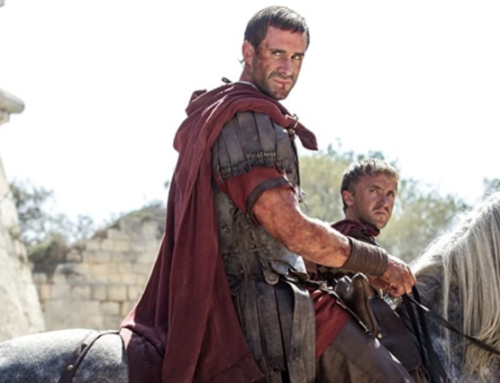
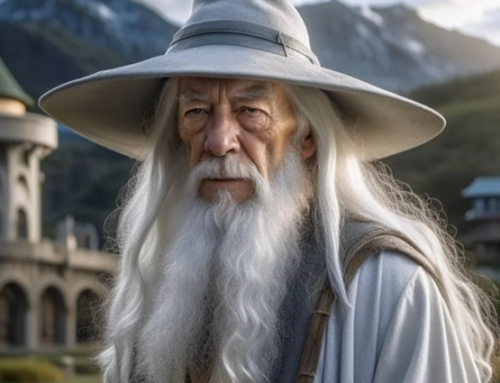
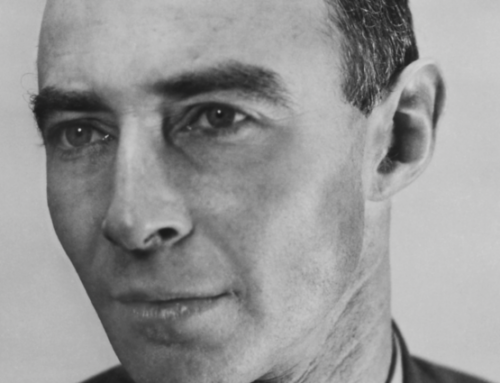
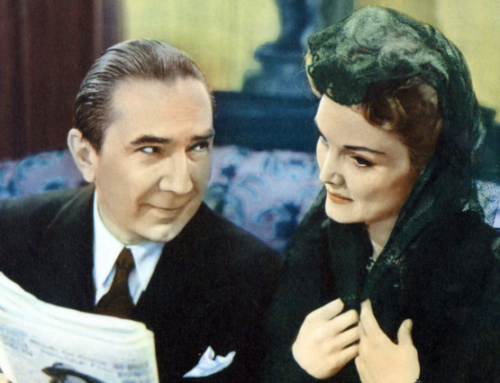
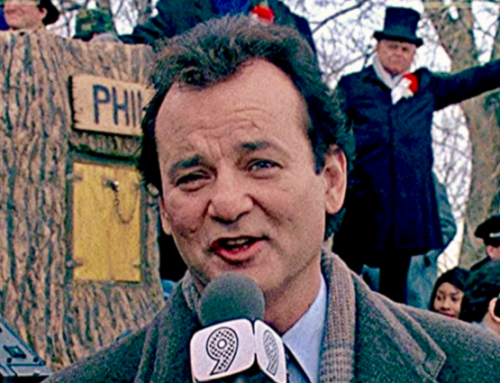
Leave A Comment